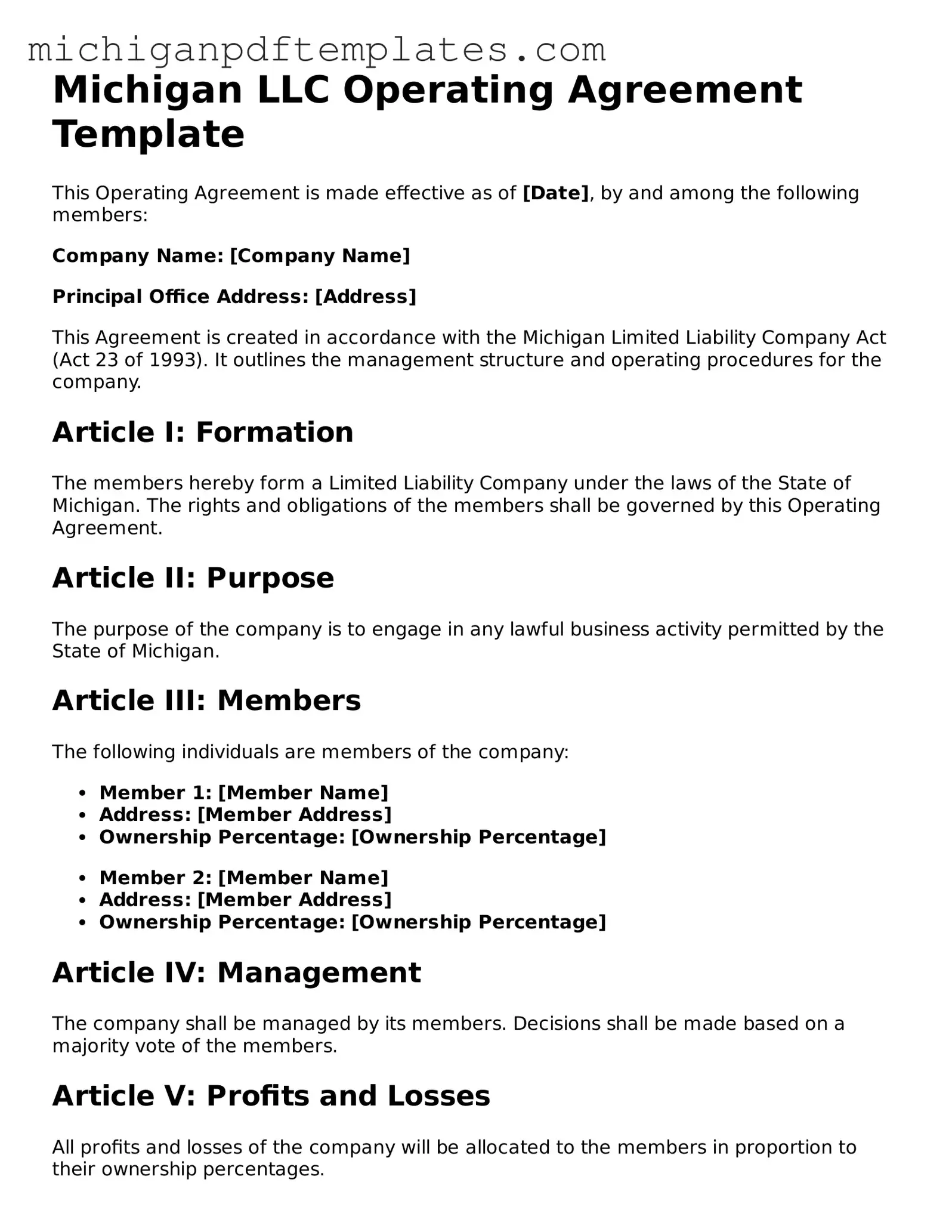Legal Michigan Operating Agreement Template
The Michigan Operating Agreement form is a crucial document that outlines the management structure and operational procedures for limited liability companies (LLCs) in Michigan. This agreement serves as a roadmap for members, detailing their rights and responsibilities while helping to prevent misunderstandings down the line. Ready to get started? Fill out the form by clicking the button below!
Get Your Form Now

Legal Michigan Operating Agreement Template
Get Your Form Now

Get Your Form Now
or
▼ PDF Form
Finish this form quickly and move on
Fill in and complete Operating Agreement online quickly.